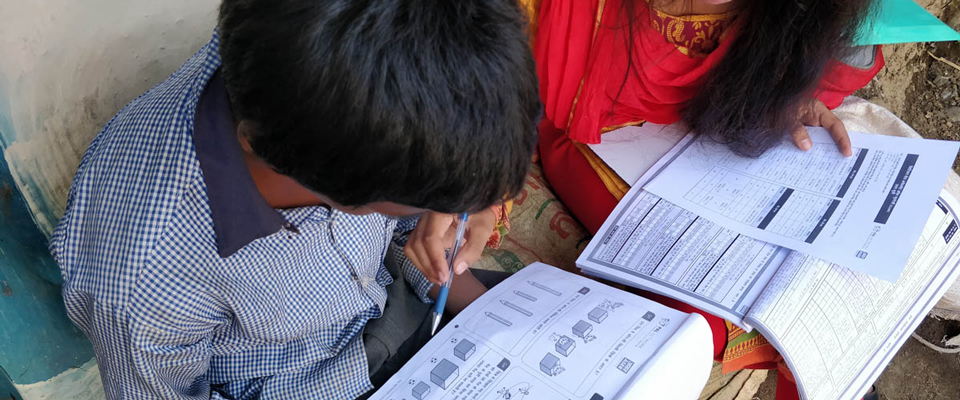
Context
This project is one of the 2023 WISE Awards winners.
The development of common global goals for education as reflected in Sustainable Development Goal 4 and the need for comparable data to monitor education quality targets has meant that many low and middle-income countries face increasing pressure to participate in existing international and regional assessment programs. These type of learning assessments are based on models and methods that emerged in the context of Global North countries, which have characteristics that are often very different from those of countries in the Global South, including several decades of universal enrolment; comprehensive records of all schools in the country; and significant proportions of parents who are themselves literate and thus better able to support their children’s learning. They are also designed to inform policy makers and education planners, rather than teachers, parents, and other actors on the ground; and thus do not generate actionable information at lower levels of performance where a large proportion of children in the Global South are usually located. This type of evidence is urgently needed by school systems in the Global South. Specifically, measurement of foundational reading and numeracy skills in early primary grades is critical to identify problems and intervene to resolve them early in children’s schooling trajectory.
Solution & Approach
The PAL Network has responded to the need for a comparable, low-cost assessment that meets these Global South realities by developing a new assessment tool – ICAN – and making it available in the public domain. ICAN (International Common Assessment of Numeracy), a simple-to-use and scalable tool that measures children’s foundational numeracy, is designed to monitor progress of SDG 4.1.1 (a) and is aligned to the Global Proficiency Framework.
Impact & Future Development
Building on ICAN’s success, PAL Network is currently developing ELANA (Early Language & Literacy and Numeracy Assessment), a new common assessment initiative. ELANA comprises two components: a numeracy assessment that builds on ICAN, expanding the number of items that form the item bank; and a literacy component that evaluates skills in the subdomains of oral language, decoding and reading comprehension. The assessment targets children between 4 and 10 years old to understand the continuum of learning between preschool and the first years of primary school and will provide estimations of achievement of SDG 4.1.1.(a) and the academic learning component of SDG4.2. In its final form, ELANA will be implemented using a digital application and will be adaptive.


